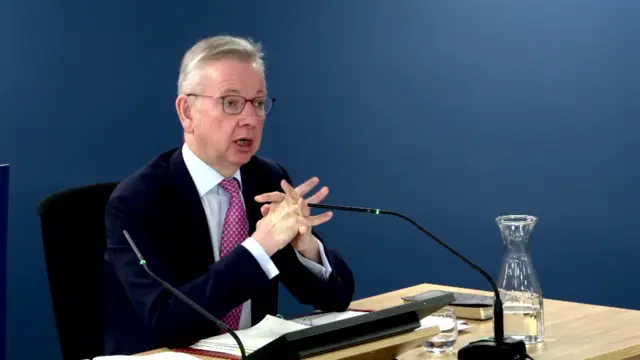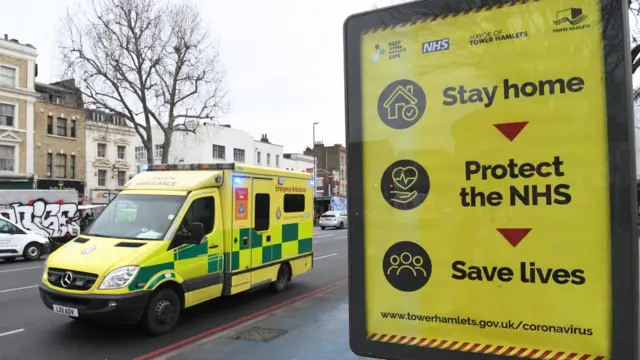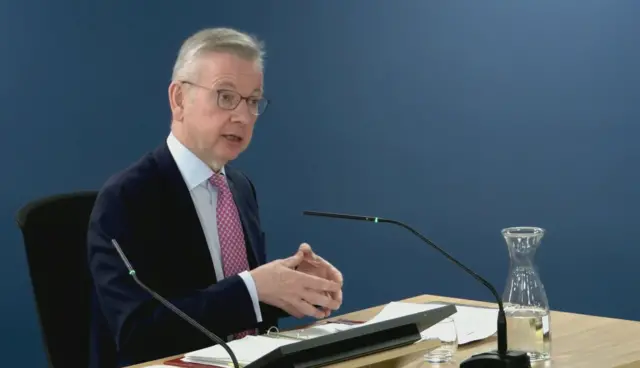Self-isolation payments were critical, says Govepublished at 15:37 GMT 28 November 2023
Now the questioning moves on to self-isolation payments.
In September 2020, the government introduced a scheme where if a person tested positive for coronavirus or was asked to self-isolate, they could apply for a £500 support payment in England and Wales if they were on a low-income and could not work from home., external
Gove is asked why he thought these payments should be done on a UK-wide basis rather than funnelling money through local authorities.
Gove says he thought it was critical to have appropriate payments for self-isolation to stop the spread of the virus and said he believed it was a UK government responsibility.





